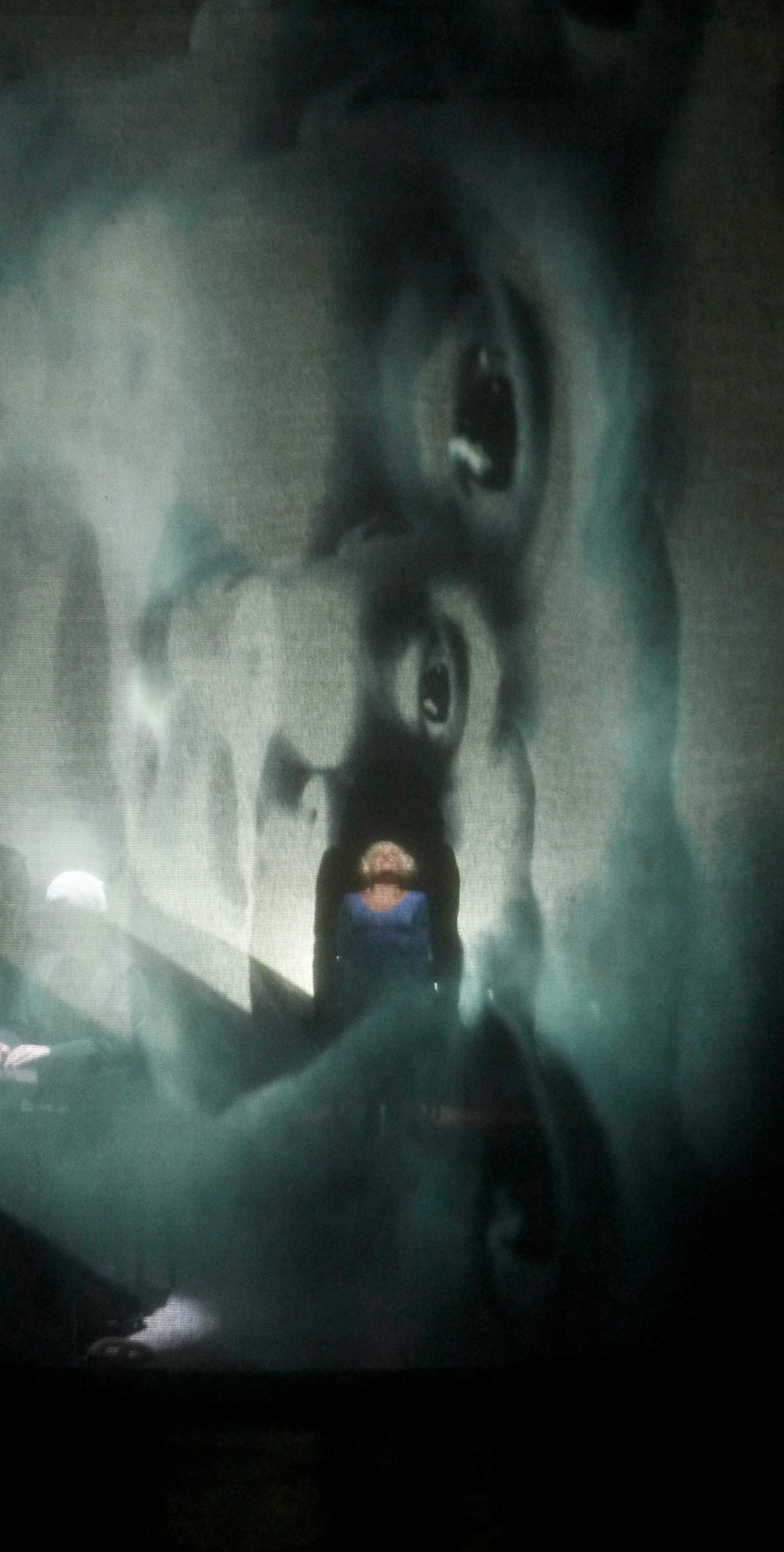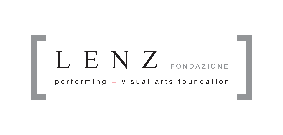
HUMAN TOO HUMAN
Human Too Human is the title of the theatre season that Lenz will organise from March to December 2022, consisting of a plurality of performance and cultural proposals, which will open the post-industrial spaces of Lenz Theatre to be enjoyed by the public..
Lenz Theatre has been the historic home of the company since 1989 and is located in Via Pasubio, Parma, in a former suburban and working-class neighbourhood that has undergone intense urban redevelopment in recent years. Here the traces of an industrial past, of which isolated sections of important archaeological value survive, coexist with innovative contemporary architectural experiments in a type of urban redevelopment with a European flavour.
Public project carried out in cooperation with national and local institutions and associations.
From beginning to beginning, in a circular time that is never identical, from Lenz to Lenz but out of the orbit already traced by years of research, of successes and arrhythmias of path, doubts and uncertainties but always unsatisfied by every result. Then the result presupposes a fresh start, new risks, new directions. New geosophies, new geographies of knowledge, new visions. Today, the situation of the world, already catastrophic due to the continuous human attack, demands an alternative thought, of ways of survival, of maintenance of the human and non-human species. These are broad thoughts, but they concern the particular, they concern each one of us. They concern war and peace, because Nature can recover from itself, like the matsutake mushroom that sprouts on the devastated landscape of Hiroshima, or on the waste of Fukushima, or like the animals wandering around Chernobyl that seem to have learned to adapt to radiation, but for the human being the prospect is much worse, he is much weaker and defenceless. Perhaps we need to go beyond the binomial Man-Nature and consider ourselves as all belonging to, and dependent on, the same Habitat. New bestiaries, new kinships. What does theatre have to do with this? If the process of emotion, feeling and the brain are characteristic, like language, of the human being, every representation, expression and refraction of thought must necessarily have something to do with it. Otherwise we would have to repeat endlessly the same way of dealing with ourselves, human actors and human spectators, pretending that everything is as it always was, that art has not been affected by the Anthropocene and its radical upheavals, that scientific research has not introduced new worlds and visions, new techniques, new creative practices, new relationships between agents and participants. It is precisely because theatre cannot exist without the two that it is necessary to stage the complexity of the world, the prospects for survival, new languages for saying, thinking and doing. You will see from the programme proposals how the search for the unveiling of complexity is strongly pursued, tracked, spied upon. Apocalypse, at the end of the three-year period, means revelation, unveiling, and we still wonder if it has already happened or if it will happen and when. This is what the theatre, as a corporeal and mortal art, should research, in parallel science and philosophy, anthropology and biology, sociology and psychology, technology and visual culture are already doing so at a frantic pace. Visual art, cinema, music and poetry have also done so in many works and are trying to keep up. Why shouldn’t contemporary theatre do so? We think that, as always, an alternative thought, a vision of the world closer to a pantheistic conception of life and nature can come today from women, from a group of European and American women who for some decades have been offering us horizons and dimensions, refractions and diffractions that stimulate us to radically reconsider functions and perspectives. Donna Haraway, Karen Barad, Judith Butler, Rosi Braidotti, Anna Tsing, Nina Lykke, for example. After Deleuze, Nancy and every rhizomatic offshoot of critical thought, these are our references today, our study interests, the imaginations of the future to be built in the knowledge that what really counts is only the present. Utopia and desire must be now, because there is no more time, the earth is tired of us and advises us to change, to revolt. Lenz’s wide-ranging vision of the need for theatre, an encyclopaedic image, has been built up over our years of work, and has shaped our theatrical practice by making us discover beauty where it was not yet perceived, could not be perceived unless we went looking for it, with the same obstinacy as a Simone Weil, a Cristina Campo. A continual linguistic, social and psychic storm, never resting on its own forms, always trespassing, even to the point of loss of sense, a continuous confrontation with unknown sensibilities and capacities, and as a compass Classicity that contains everything and repeats everything, never the same. From Büchner’s Lenz to Catharina von Siena’s Lenz, we are still talking about madness and sanctity, but outside the initial time and drama lines, still building together for the next three years. Lenz Foundation 9th March 2022 Francesco Pititto ✧ Friday, February 18 – streaming ADELCHI ✧ Wednesday, March 16 6 pm – full video projection + intermezzo drink 8:30 pm – live show + Other States Lenz Room ✧ Thursday, March 17 6 pm – full video projection + intermezzo drink 8:30 pm – live show ✧ Friday, March 18 5:30 pm – full video projection 7:30 pm – live show + after show > sound & visual from Life is dream ✧ Saturday, March 19 6:30 pm – full video projection 8:30 pm – live show + after show > sound & visual from Life is dream ✧ Wednesday, March 23 6 pm – full video projection + intermezzo drink 8:30 pm – live show + Other States Lenz Room ✧ Thursday, March 24 6 pm – full video projection + intermezzo drink 8:30 pm – live show ✧ Friday, March 25 5:30 pm – full video projection 7:30 pm – live show + after show > sound & visual from Life is dream ✧ Saturday, March 26 6:30 pm – full video projection 8:30 pm – live show + after show > sound & visual from Life is dream ✧ Thursday, April 7 6:30 pm – full video projection 7:30 pm – live show ✧ Wednesday, April 13 8:30 pm – live show ✧ Thursday, April 7 6:30 pm – live show ✧ Friday, April 15 7:30 pm – live show ✧ Saturday, April 16 8:30 pm – live show ✧ from Monday 25 April to Friday 29 April from 18:00 to 20:00 RESISTANCE AND LIBERATION DAY CELEBRATIONS WOMEN PARTISANS OF THE RESISTANCE – video installation ✧ Monday, April 25 9 pm – streaming ✧ Wednesday, April 27 from 5:30 pm to 7:30 pm – seminar no.1 ✧ Tuesday, May 17 9 pm – streaming ✧ from Tuesday 17 May to Saturday 21 May 9 pm – live sharing ✧ Saturday, May 21 9 pm – streaming ✧ from Monday 6 June to Thursday 9 June 9:30 pm – live show ✧ Thursday, June 9 8:30 pm – full video projection ✧ Friday, June 10 from 4 pm to 7 pm – seminary no.2 9:30 pm – live show ✧ Wednesday, June 22 9 pm – live show ✧ Thursday, June 23 9 pm – live show ✧ Thursday, July 7 8:30 pm – full video projection ✧ from Tuesday 12 July to Friday 15 July 9 pm – live sharing ✧ Friday, October 7 5:30 pm + 8:30 pm -site-specific performance in the Saint Paul Chamber ✧ Saturday, October 8 5:30 pm + 8:30 pm -site-specific performance in the Saint Paul Chamber ✧ Tuesday, October 11 8:30 pm -site-specific performance in the Saint Paul Chamber ✧ Wednesday, October 12 8:30 pm -site-specific performance in the Saint Paul Chamber ✧ Thursday, October 13 5:30 pm + 8:30 pm -site-specific performance in the Saint Paul Chamber ✧ Friday, October 14 5:30 pm + 8:30 pm -site-specific performance in the Saint Paul Chamber ✧ Saturday, October 15 5:30 pm + 8:30 pm -site-specific performance in the Saint Paul Chamber 9 pm – streaming ✧ from Wednesday 2 November to Saturday 5 November 8:30 pm – live show ✧ Saturday, November 5 from 4 pm to 7:30 pm – seminary no.3 8:30 pm – live show ✧ Sunday, November 26 8 pm – live show ✧ Sunday, November 27 8 pm – live show ✧ Tuesday, November 29 8 pm – live show ✧ Wednesday, November 30 8 pm – live show ✧ Thursday, December 1 8 pm – live show ✧ Friday, Dicember 2 from 11 am to 6 pm – seminary no.4 8:30 pm – live show ✧ Tuesday, Dicember 5 8:30 pm – live performance 9:30 pm – live performance ✧ Wednesday, Dicember 6 8:30 pm – live performance 9:30 pm – live performance ✧ Thursday, Dicember 7 8:30 pm – live performance 9:30 pm – live performance
by Alessandro Manzoni
translation, dramaturgy, imagery: Francesco Pititto
installation, direction, costumes: Maria Federica Maestri
music: Andrea Azzali
performers: Franck Berzieri, Carlo Destro, Carlotta Spaggiari
LA VITA È SOGNO (Life is dream)
ALTRO STATO (Other State)
LA VITA È SOGNO (Life is dream)
ALTRO STATO (Other State)
LA VITA È SOGNO (Life is dream)
ALTRO STATO (Other State)
LA VITA È SOGNO (Life is dream)
ALTRO STATO (Other State)
LA VITA È SOGNO (Life is dream)
ALTRO STATO (Other State)
LA VITA È SOGNO (Life is dream)
ALTRO STATO (Other State)
LA VITA È SOGNO (Life is dream)
ALTRO STATO (Other State)
LA VITA È SOGNO (Life is dream)
ALTRO STATO (Other State)
IPHIGENIA IN TAURIDE (Iphigenia in Tauris)
IPHIGENIA IN AULIDE ORATORIO (Iphigenia in Aulis)
LA CREAZIONE (The Creation)
LA CREAZIONE (The Creation)
LA CREAZIONE (The Creation)
LA CREAZIONE (The Creation)
KINDER
PARTISAN RESISTANCE
ROSA WINKEL
ANNAMARIA AJMONE
BESTIARY – kinship no.1
RADICAL CHANGE
CATHARINA VON SIENA
by Jakob Michael Reinhold Lenz. Adaptation and dramaturgy: Francesco Pititto. Installation, direction, costumes: Maria Federica Maestri. Music: Adriano Engelbrecht e Andrea Azzali. Performer: Sandra Soncini.
CATHARINA VON SIENA. FILM
by Jakob Michael Reinhold Lenz. Adaptation and dramaturgy: Francesco Pititto. Installation, direction, costumes: Maria Federica Maestri. Music: Adriano Engelbrecht e Andrea Azzali. Performer: Alessandro Castiglione, Sara Monferdini, Elisa Orlandini, Sandra Soncini.
FEMINISM AND HOLINESS
CATHARINA VON SIENA
EXALTATIONS EXIT LAB
FROM CATHARINA VON SIENA
by Jakob Michael Reinhold Lenz.Adaptation and dramaturgy: Francesco Pititto. Installation, direction, costumes: Maria Federica Maestri. Performers: students from Lab SERD.
EXALTATIONS EXIT LAB
FROM CATHARINA VON SIENA
by Jakob Michael Reinhold Lenz. Adaptation and dramaturgy: Francesco Pititto. Installation, direction, costumes: Maria Federica Maestri. Performers: students from Lab SERD.
CHAOS
dal Primo Libro de Le metamorfosi di Ovidio. Adaptation and dramaturgy: Francesco Pititto.Installation, direction, costumes: Maria Federica Maestri. Music: Andrea Azzali. Performers: Valentina Barbarini, Giuseppe Barigazzi, Elena Sorbi, Laura Vallavanti.
STEFANIA ALOS PEDRETTI
BESTIARY -kinship no.2
FLOWERS LIKE STARS?
FLOWERS LIKE STARS?
FLOWERS LIKE STARS?
FLOWERS LIKE STARS?
FLOWERS LIKE STARS?
FLOWERS LIKE STARS?
FLOWERS LIKE STARS?
IL PRINCIPE COSTANTE
LPPP > LENZ FOR PIERPAOLO PASOLINI
Dramaturgy and imagoturgy: Francesco Pititto. Installation, direction, costumes: Maria Federica Maestri. Music: Andrea Azzali. Performers: still in definition.
PIERPAOLO PASOLINI INFLUENCES AND TENTACLES
LPPP > LENZ FOR PIERPAOLO PASOLINI
NUMERI (Numbers)
From the Fourth Book of the Bible. Dramaturgy and imagoturgy: Francesco Pititto. Installation, composition, enclosures: Maria Federica Maestri. Music: Andrea Azzali. Performers: still in definition.
NUMERI (Numbers)
NUMERI (Numbers)
NUMERI (Numbers)
NUMERI (Numbers)
From the Fourth Book of the Bible. Dramaturgy and imagoturgy: Francesco Pititto. Installation, composition, enclosures: Maria Federica Maestri. Music: Andrea Azzali. Performers: still in definition.
NEW STATES OF PERFORMING ARTS
NUMERI (Numbers)
JAN VOXEL
BESTIARY – kinship no.3
MONICA BARONE
BESTIARY – kinship no.4
JAN VOXEL
BESTIARY – kinship no.3
MONICA BARONE
BESTIARY – kinship no.4
JAN VOXEL
BESTIARY – kinship no.3
MONICA BARONE
BESTIARY – kinship no.4








